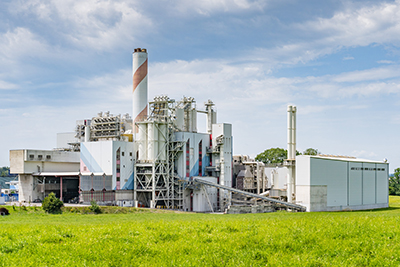Seizing sustainable growth opportunities from carbon capture, usage and storage in the UK

Downloads
With a foreword by Lord Nicholas Stern
The UK has responded to the climate crisis with an economy-wide target to reach net-zero emissions by 2050. The use of carbon capture, usage and storage (CCUS) is key for enabling a net-zero-aligned growth path, given its role in decarbonising hard-to-abate industries such as steel and cement, producing low-carbon hydrogen and delivering negative emissions.
This report takes a pragmatic look at CCUS to make actionable recommendations for the UK government to be able to maximise economic opportunities and wider societal co-benefits, while building CCUS as a sector in its own right. The authors assess economic and potential employment opportunities and implications for the skills needed, as well as transferable strengths and capabilities from other sectors and barriers and enablers for growth in the UK.
Key messages
- The Government’s current stated ambition is to capture 10 million tonnes of carbon dioxide a year by 2030. To meet net-zero, this needs to be ramped up significantly. There are projects already in early development stages across the UK that together could deliver double that capacity in the 2020s.
- The potential contribution of CCUS to sustainable growth is high, especially considering the long-term preservation of jobs – potentially up to 53,000 by 2030 – in energy-intensive industries, and benefits from emerging UK CCUS supply chains tapping into export markets.
- The more aligned CCUS deployment can be with net-zero over this decade, the higher the potential for job creation.
- Construction activities will be the main driver of jobs in the short to medium run, which has the potential to contribute to the UK’s economic recovery. Estimates suggest up to 31,000 jobs could be created by 2030.
- The UK demonstrates a comparative advantage in CCUS innovation that exceeds its comparative advantage in other broad categories of ‘clean’ technology.
- Evidence points to there being a levelling-up opportunity from CCUS if support is directed strategically to address the unequal distribution of innovative performance across the country.
- Compared with the top CCUS-innovating countries, the UK has particular strengths in some technologies that are ‘adjacent’ to CCUS.
- There has since been a step-change in CCUS in the UK and around the world, which justifies strengthening investment in innovation.
- The UK cannot afford any further policy failure or delays deterring investment in CCUS, given the urgency of net-zero and fragile investor confidence.
High-level recommendations
- A consistent, long-term policy, institutional and regulatory framework, underpinned by multi-year funding, is needed to improve coordination across stakeholders at the national and local levels on the entire portfolio of net-zero solutions and technologies, including CCUS.
- The government should make up for years of stalled progress by taking a holistic approach, addressing barriers to CCUS investment and capitalising on the UK’s comparative advantages
An inconsistent policy environment, including two failed major demonstration competitions, has been the primary setback against CCUS development in the UK to date. Now is the time to make up for years of stalled progress in deploying this essential technology. What’s more, fast, strategic action can unlock growth opportunities along the way. Focus should be on areas where the UK has or can build comparative advantage, crucially by capitalising on its existing capabilities in the oil and gas sector, to deliver significant emissions abatement while generating export opportunities and wider economic benefits from CCUS.
This report was produced with the Centre for Economic Performance (CEP) and the Programme on Innovation and Diffusion (POID) at LSE.

